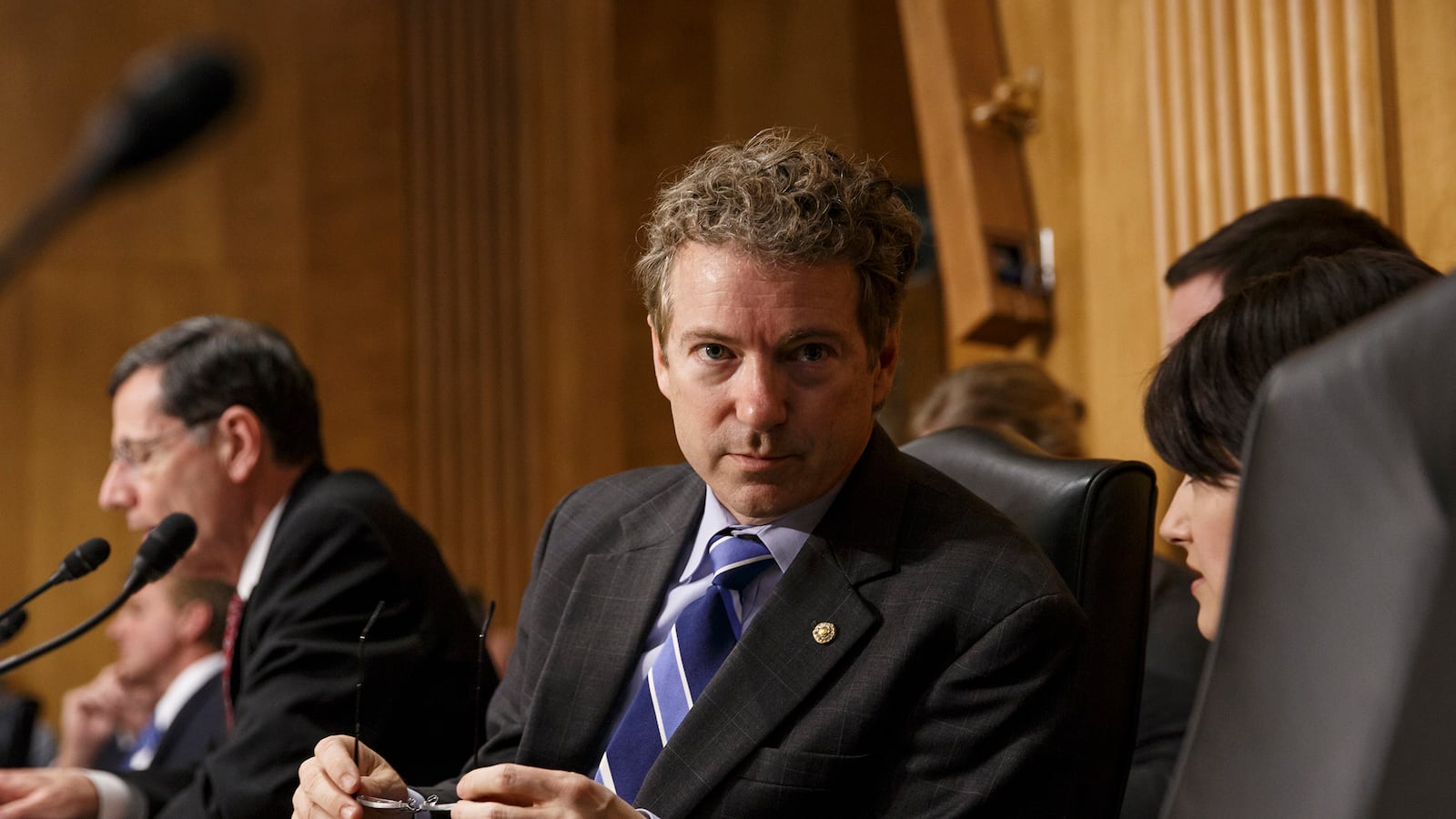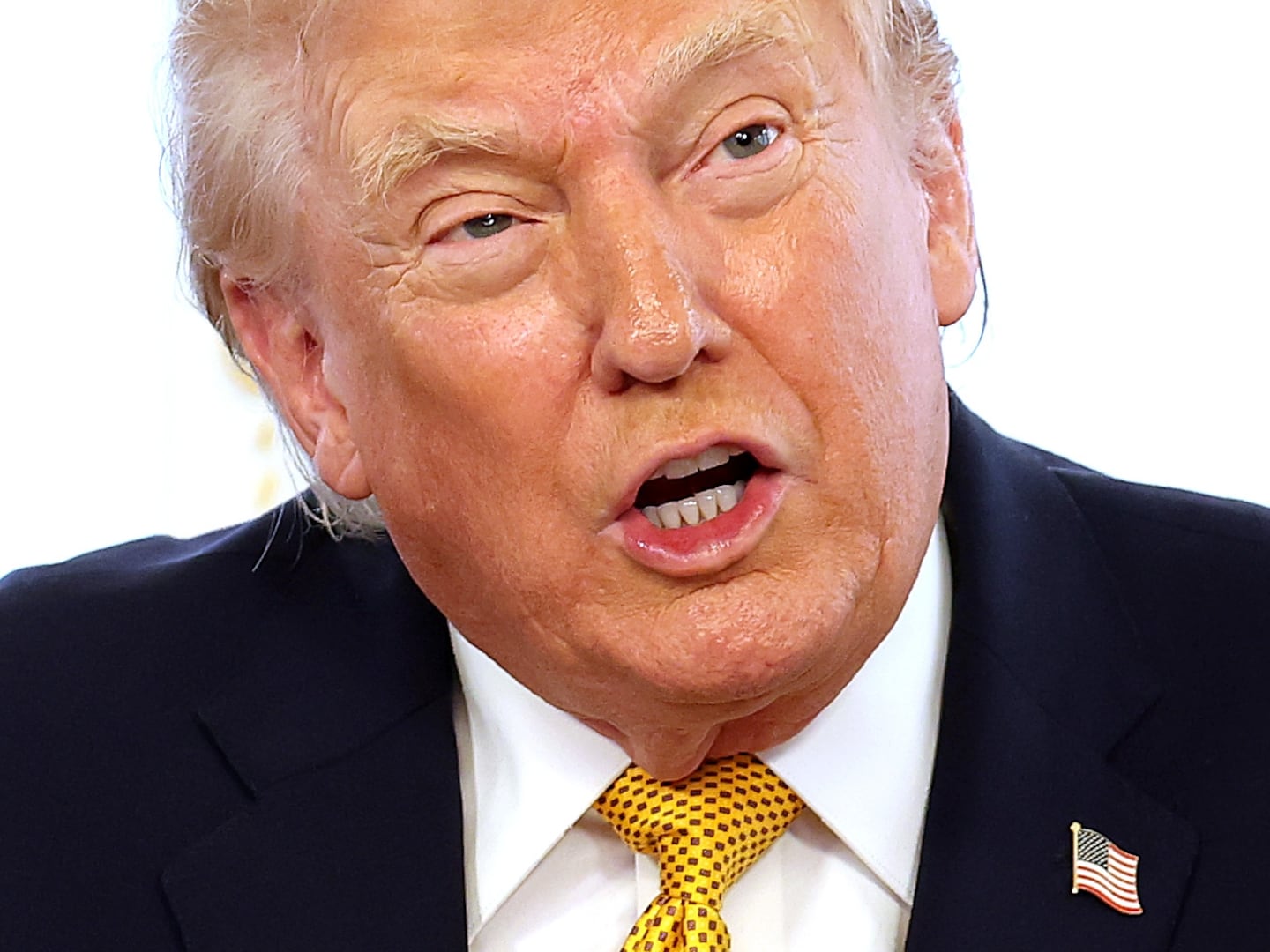I think we can all agree that, in the current struggle for the soul of the Republican Party, few skirmishes offer better drama than the ongoing clash of the Cheney and Paul clans. Pick your permutation—Dick firing on Rand, Ron firing on Dick, Rand on Liz, Dick on Ron, Rand on Dick—this display of isolationist Hatfields vs. neocon McCoys consistently packs more sizzle than Anthony Weiner’s Twitter feed. Plus, with Rand gearing up for a run at the big chair in 2016, the feud promises to get even hotter as the ex-veep, prodded by fellow hawks, stews over the mere possibility of a Republican POTUS so intervention-averse that he’d make Barack Obama look like, well, Dick Cheney.

Case in point: On March 29, during Sheldon Adelson’s Las Vegas cattle call for 2016 contenders, Cheney took a slap at “an increasing strain of isolationism” in his party. “It’s not taking over, by any means, but there is without question a body of thought now that’s supported by many Republicans and some candidates that the United States can afford to turn its back on that part of the world,” he grumbled, referring to attitudes toward the Middle East. Cheney didn’t bother mentioning Rand’s name. I mean, really, why bother? Safe to say everyone in the audience knew precisely whom he meant by “some candidates.”
But in case anyone failed to make the connection, David Corn over at Mother Jones helpfully stirred the pot, using the ex-veep’s remarks as a hook upon which to hang a four-year-old video of Paul peddling a whopping good conspiracy theory about Cheney and the Iraq War. Specifically, shortly before entering the Senate race in 2009, at an April 7 address to college Republicans at Western Kentucky University, Paul posited that Cheney had pushed for the 2003 invasion of Iraq because it would fatten Halliburton’s bottom line.
As Paul apparently sees it, the timeline makes perfect sense: Back in 1995, Cheney was running around vigorously defending the first Bush administration’s decision not to invade Baghdad during the first Gulf War. But then, ka-boom! (Or rather, ka-ching!) “Dick Cheney then goes to work for Halliburton,” Paul said in 2009. “Makes hundreds of millions of dollars, their CEO. Next thing you know, he’s back in government and it’s a good idea to go into Iraq.”
Lest someone mistake Paul’s college talk as some sort of overly enthusiastic “one off,” Corn points to a second Paul speech, this one at a Montana rally during his dad’s 2008 presidential campaign, in which Rand got even more explicit about his view of Cheney’s conversion:
But, you know, a couple hundred million dollars later Dick Cheney earns from Halliburton, he comes back into government. Now Halliburton’s got a billion-dollar no-bid contract in Iraq. You know, you hate to be so cynical that you think some of these corporations are able to influence policy, but I think sometimes they are.
Wow. Forget “No blood for oil.” For Paul, America’s Iraq debacle was a mercenary swap of blood for several billion dollars in federal contracts to Cheney’s former company to do everything from put out oil field fires to provide housing for soldiers. That is some serious military-industrial complex paranoia.
Make no mistake: As someone who opposed the Iraq War, I enjoy watching Cheney get slapped around on the issue as much as the next gal. But it’s one thing to accuse the former veep of ideologically driven Machiavellianism; ’tis quite another to suggest that he did what he did out of loyalty to his Halliburton cronies. That is a far darker charge that, while already generating glee on the left, is also the kind of right-on-the-knife’s-edge-of-nuttiness conspiracy-spinning likely to bite Paul on the butt as he tries to capture his party’s nomination. (The senator’s office did not respond to a request for comment.)
These days, you don’t hear Paul peddling theories anywhere near as incendiary. This is no accident. Much has been written about the ambitious senator’s move to play nicer with the Republican establishment and build a more mainstream coalition than his dad could ever manage. Gadflies may launch movements, but they rarely win the White House.
As Paul moves closer and closer to the presidential trail, however, legions of journalists, oppo researchers, and even garden-variety voters will be rooting around in his past like hogs digging for truffles. These two speeches swiping at Cheney are unlikely to be the only colorful nuggets unearthed. Paul is a passionate, quirky pol who, until very recently, didn’t see much need to watch his tongue. Whatever else it’s doing to prep for 2016, Team Rand had better be bracing for Americans to learn about some of the senator’s fringier thoughts and theories.






